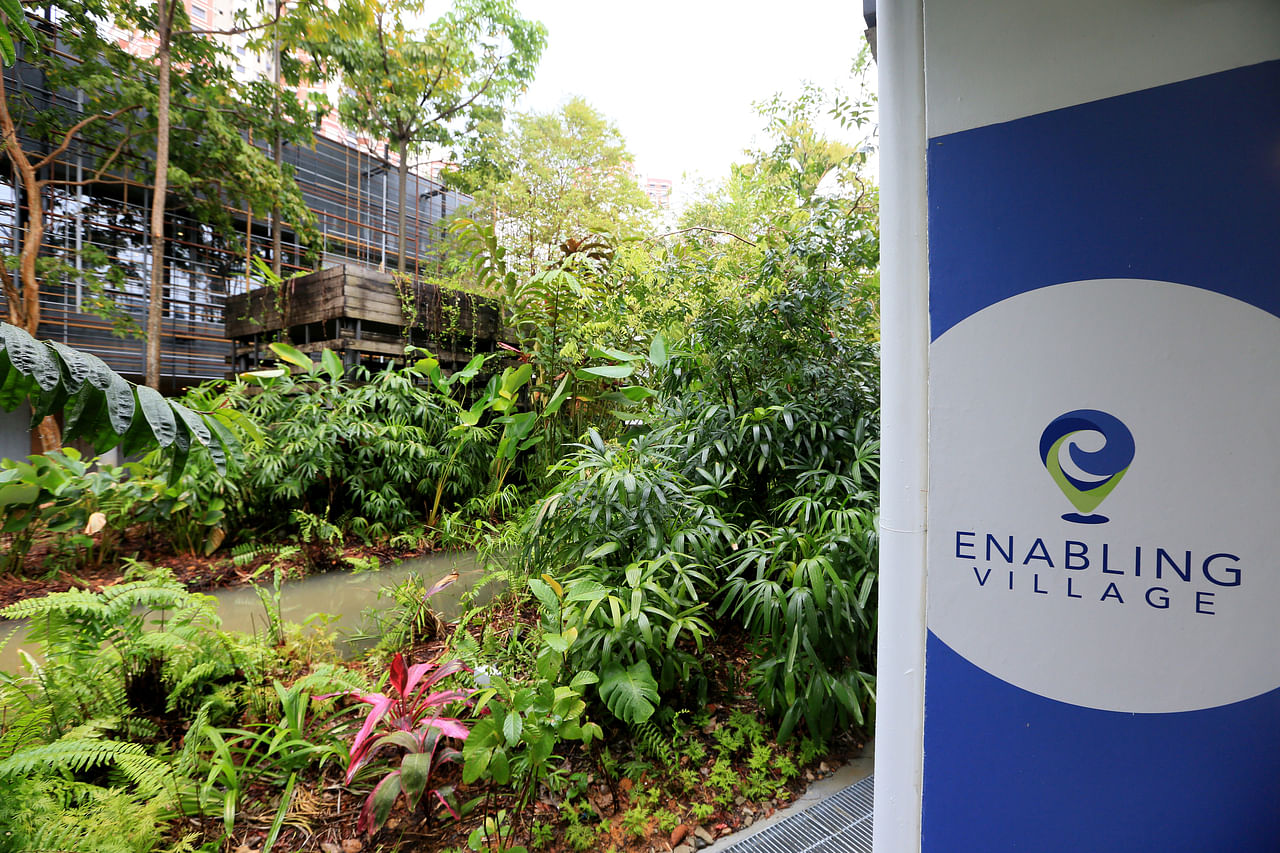Millennial Mind
Will you love my cousin with special needs when his parents are gone?
Sign up now: Get ST's newsletters delivered to your inbox

The struggles of parents with children born with special needs are many and will only pile on as they get older.
PHOTO ILLUSTRATION: PEXELS
SINGAPORE - If you were part of the evening rush hour on the MRT earlier this month, you might have seen an excited 1.9m-tall man humming and swaying. You might have stared at him glancing around non-stop and wondered whether he was a "suspicious-looking person" because of his visibly different behaviour.
That was likely to be my autistic cousin Zack (not his real name), who ran off without his mother after his daily training programme at Enabling Village in Bukit Merah.
Zack, 22, loves travelling on the bus and MRT but he is not allowed to go home alone because he gets distracted by his surroundings.
That day, my cousin and his peers were let go 15 minutes before the usual dismissal time at 5pm, so Zack went off on his own before his mum picked him up. What ensued was a nerve-wracking ordeal for his family. While my aunt told him to alight at certain stations over a call, he went from Redhill to Pasir Ris, then back to Joo Koon before changing to the North-South line, which is the line near his home.
At the same time, my aunt informed the MRT staff of the situation and they alerted all control stations to look out for a young man wearing an orange T-shirt. Some 90 minutes later, my cousin's phone went dead because the battery ran out.
Three hours after boarding the train, Zack was finally spotted wandering around a bus interchange near his home by his younger sister. He was wearing his orange top but it was covered by a blue jacket that he uses during training.
That is just a snapshot of the daily struggle of caring for those with special needs.
Although it might be exhausting for family members to look after them, there are many sides to them that make them lovable. For one, Zack is the most responsible citizen I know because he scans the SafeEntry QR code of every shop and station. Inadvertently, this leads to some embarrassing situations when he enters shops like salons, which are only for women.
He also never forgets the birthdays of all 19 (living) members of our extended family. Before a long day at work, it brightens my day to receive texts from him asking what I am doing.
While he can perform basic tasks like brushing his teeth, showering and mopping the floor with supervision, there are certain things that he will never be able to understand.
He sees the world literally.
Heaven is in Mandai Crematorium because this is where his loved ones - my grandfather and my 10-year-old cousin - went when they died.
Zack also cannot understand social cues. This means he can get uncomfortably close to you and will not understand why you inch away.
After receiving numerous stares from strangers gawking at Zack's behaviour whenever we go on family outings, I learnt early on that he would need a lot of care and patience for the rest of his life.
The struggles of parents with children born with special needs are many and will only pile on as they get older: the high costs for support and the onset of burnout, with the greatest concern being who will take care of their children after they are gone.
On the bright side, support for special needs children has grown over the past two decades. Zack was from the third batch of pupils enrolled in Pathlight School, the first school designed for children with autism aged seven to 18 that opened in 2004.
More government-funded special education schools - institutions with curriculum designed for those with special needs - have since sprung up around the island, with others in the pipeline.
But past age 18, children from special education schools have few options. Some find work or go to the Enabling Village like Zack. The Enabling Village was started by the Ministry of Social and Family Development and government-linked agency SG Enable to house inclusive social businesses and organisations, as well as to train and employ people with disabilities. The founding donors of the space include the Lee Foundation and it is also supported by various government bodies.
More young people with disabilities, ranging from those with intellectual disabilities to those with physical impairments, are finding jobs, but the majority remain unemployed.
For the past two years, an average of 30.1 per cent of people with disabilities from Singapore aged 15 to 64 were employed. This means nearly seven in 10 do not get jobs to financially support themselves.

<p>由新加坡协助残障者自立局(SG Enable,简称新协力)和社会及家庭发展部于2015年设立的新协力综合设施(Enabling Village),是本地首个专为弱势群体提供职业培训与就业配对,集合了服务特需者的零售、生活与培训的社区空间。</p>
PHOTO: CMG
Some attend the Day Activity Centres (DACs), which provide day-care programmes for those who live with their families and are unable to work.
But wait lists are long. The estimated waiting time for a DAC can be up to five years.
Of the 31 DACs in Singapore, five had vacancies, six had low vacancies and the rest had no vacancies, as at November last year.
The reality is that after the age of 18, most people with disabilities will likely remain at home, if they have one. Adults with disabilities who are neglected or whose caregivers are incapable of giving care can be admitted to eight Adult Disability Homes (ADHs), but have to fulfil criteria the home caters to, such as having an intellectual disability with an IQ below 70.
Some people with disabilities, not just those with autism, will require significant, if not full income support for the rest of their lives, either from the family, community, state, or all three.
Even if they had the means, parents also have to shoulder the burden of making financial and care plans for their children after they die. Because who will care for them apart from their remaining family members?
That said, the Government has enhanced funding for DACs and ADHs last year, among other positive steps. It is also developing programmes and services for people with disabilities under the Enabling Masterplan.
While writing this column, I asked Zack's mum if there was anything she wanted me to include in it. She had just one wish. "Our main worry is long-term care," she said. "The day that society will become inclusive is unlikely to happen, so I hope that one day there will be an inclusive village."
She said the dream was for a place where neurotypical people and people with autism can live together, and where there are facilities to train and serve residents, such as a minimart, eateries and internal bus services.
Outside of Singapore, such villages do exist worldwide. At Camphill Village in New York, adults with developmental disabilities and volunteers live and work together as equals. To date, there are more than 100 of such communities, including villages and schools, around the world with the same mission to create an inclusive space.
During the recent Budget debate, MPs mooted ideas on how society can improve support for adults with disabilities and lighten the cost burden for caregivers.
On top of Singapore's effort to encourage continuous education, Ms Denise Phua (Jalan Besar GRC) proposed that special education schools can also help children to learn for life beyond 18 to avoid "falling off the cliff" with no hope of further education.
Workers' Party MP Jamus Lim (Sengkang GRC) suggested free public transport for people with disabilities.
Even as policies are transformed to make society friendlier to people with disabilities, being compassionate to those who look and behave differently has to start from us.
It is not uncommon to see members of the public staring or even glaring in annoyance at parents and helpers having trouble quietening their special needs charges on public transport.
Last Tuesday, for instance, a man scolded Zack in Mandarin (which he does not understand) for glancing left and right on the bus. After my aunt explained to the stranger about Zack's condition, he was understanding and did not say another word.
How nice would it be to have a community where people understand and accept that others can behave differently and caregivers need not have to explain their circumstances.
After all, the person acting up in public is someone's loved one; one day it might be your own relative doing so. We could all get used to not staring and give a gentle smile of support instead.
There are many proactive ways to show support for people with special needs like Zack.
For instance, you can join the Facebook group Reunite Missing Children or follow the Singapore Police Force's social media accounts to look out for those who go missing. Or you can chip in with time and money to help organisations supporting people with disabilities.
And perhaps through small steps like these, we can assure caregivers that even after they are gone, our society will look after their special children.


